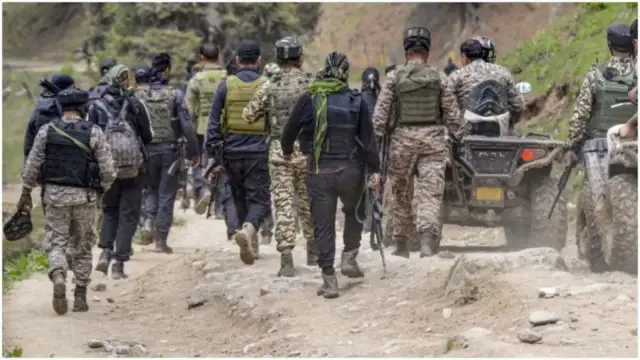India-China ties strengthen as EAM Jaishankar, Wang Yi discuss border deal implementation amid G20 Summit
G20 Summit: The disengagement process commenced at key friction points, including Depsang and Demchok, with both armies dismantling temporary structures and retreating to pre-confrontation positions.

G20 Summit: External Affairs Minister S. Jaishankar met with Chinese Foreign Minister Wang Yi on the sidelines of the G20 Summit in Rio de Janeiro on Tuesday, marking their first interaction since the landmark border disengagement deal was signed in October. This significant meeting is part of ongoing efforts to mend strained ties between the two nations.
Meeting Builds on Modi-Xi Agreement
The talks follow the commitment made by Prime Minister Narendra Modi and Chinese President Xi Jinping at the BRICS Summit in Kazan, where they agreed on the necessity of a ministerial-level meeting to solidify bilateral ties.
Jaishankar expressed optimism about the implementation of the disengagement deal, emphasizing that progress on the ground has been smooth. He noted that both sides exchanged views on the deal's proceedings and outlined the next steps to strengthen their relationship.
Geopolitical Importance of India-China Relations
Highlighting their shared prominence in BRICS and the G20, Jaishankar stressed that these platforms underline the geopolitical significance of India and China. Improved bilateral relations could pave the way for broader cooperation in global affairs. India announced substantial progress in resolving the long-standing border standoff, which had escalated with troop deployments and military infrastructure buildups on both sides.
The disengagement process commenced at key friction points, including Depsang and Demchok, with both armies dismantling temporary structures and retreating to pre-confrontation positions. The process is ongoing in the Kazakh region, marking a major de-escalation in tensions.
Next Steps in India-China Relations
Jaishankar acknowledged that the border deal’s implementation sets the stage for the next phase of bilateral cooperation. Both nations are expected to continue working on reducing tensions and expanding areas of mutual interest.















